Samsung Galaxy Book Pro vs Apple MacBook Air M1 (2020): which ultra-portable is best?
Two fast flagship laptops from tech’s biggest hitters go head to head

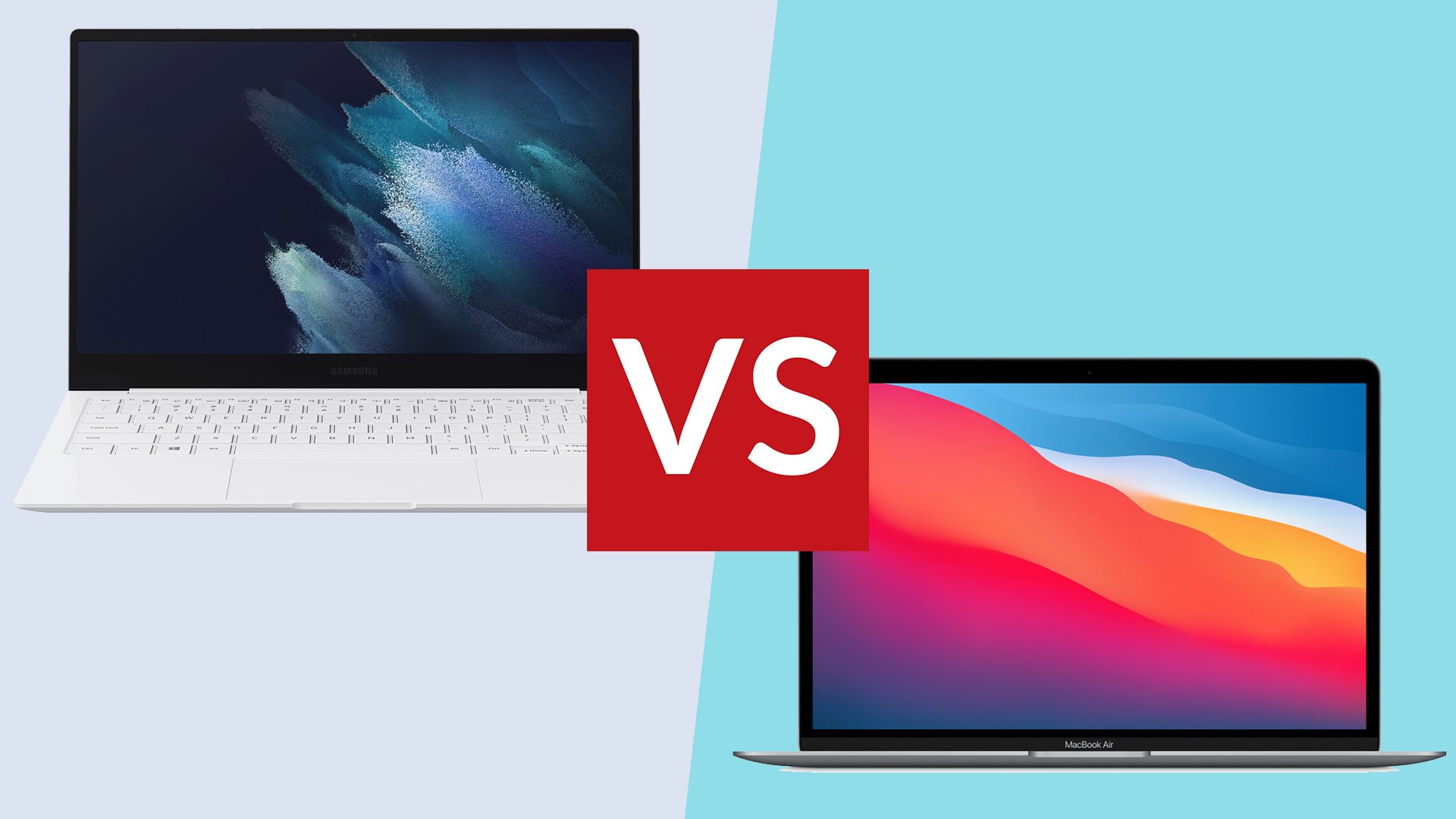
Get all the latest news, reviews, deals and buying guides on gorgeous tech, home and active products from the T3 experts
You are now subscribed
Your newsletter sign-up was successful
Apple wasn’t the only big-name tech firm with an important event this spring: just after Apple’s Spring Loaded event brought us new M1 iMacs, Samsung’s Galaxy Unpacked showed off some fresh Galaxy Book laptops.
The most exciting are the Galaxy Book Pro models, the Galaxy Book Pro and the Galaxy Book Pro 360. They have 11th-gen Intel Core i5 and i7 processors, boast the latest Wi-Fi 6E tech and the Book Pro is available with LTE connectivity built-in.
But how do they compare to our current pick for the best laptop, Apple’s incredibly fast MacBook Air (M1, 2020)? Let’s find out.
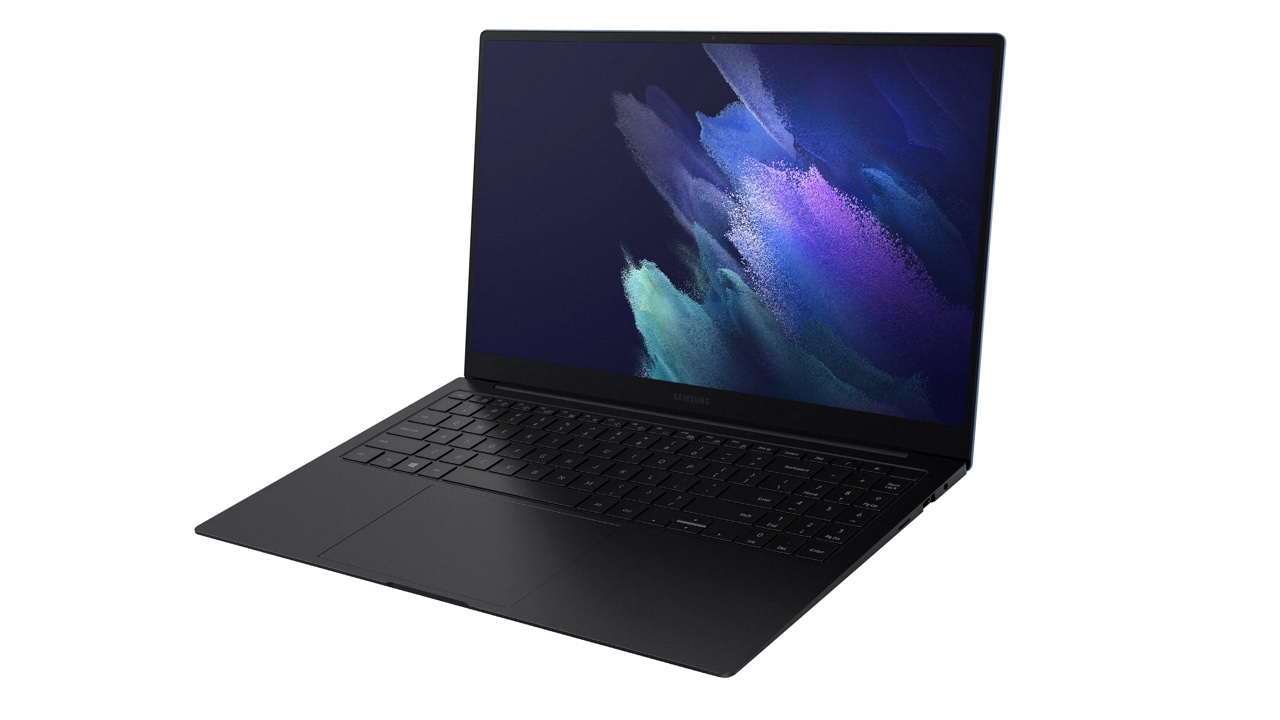
Samsung Galaxy Book Pro vs MacBook Air: Design
The Galaxy Book Pro comes in two versions: the Book Pro and the Book Pro 360. They are largely identical but the 360 is a hybrid and they have different displays: where the FHD display in the Book Pro is an AMOLED screen, the Book Pro 360 has a reversible Super AMOLED touch screen and S Pen stylus.
The MacBook Air doesn’t have a hybrid or touchscreen option, so we’re focusing on the Samsung Galaxy Book Pro. It has a choice of screen sizes and resolutions: 13.3” at 1,920 x 1,080 or 15.6” at 1,920 x 1,080. Both versions have Smart Colour Tuning to adjust their output to the ambient conditions, which works rather like Apple’s True Tone tech. The display is matched with AKG speakers with Dolby Atmos, and its 720p webcam is backed with noise-cancelling microphones. You can choose between Mystic Silver or Mystic Blue finishes.
You know what the MacBook Air looks like. While Apple is experimenting with new designs and pastel shades for its new M1 iMacs, the MacBook Air is unchanged on the outside and comes in the familiar gold, silver and space grey colour options. It’s a perfectly decent design but it’s really rather dated now after more than a decade of minor tweaking. The display is superb, though: it’s a 13.3-inch IPS delivering 2,560 x 1,600 with P3 wide colour and True Tone colour adjustment. It’s not an AMOLED but as LCDs go it’s one of the best.
As with the Galaxy Book Pro the sound here is stereo with Dolby Atmos. The webcam in the MacBook Air is also 720p and Apple’s microphones use directional beam-forming for better clarity.
Get all the latest news, reviews, deals and buying guides on gorgeous tech, home and active products from the T3 experts
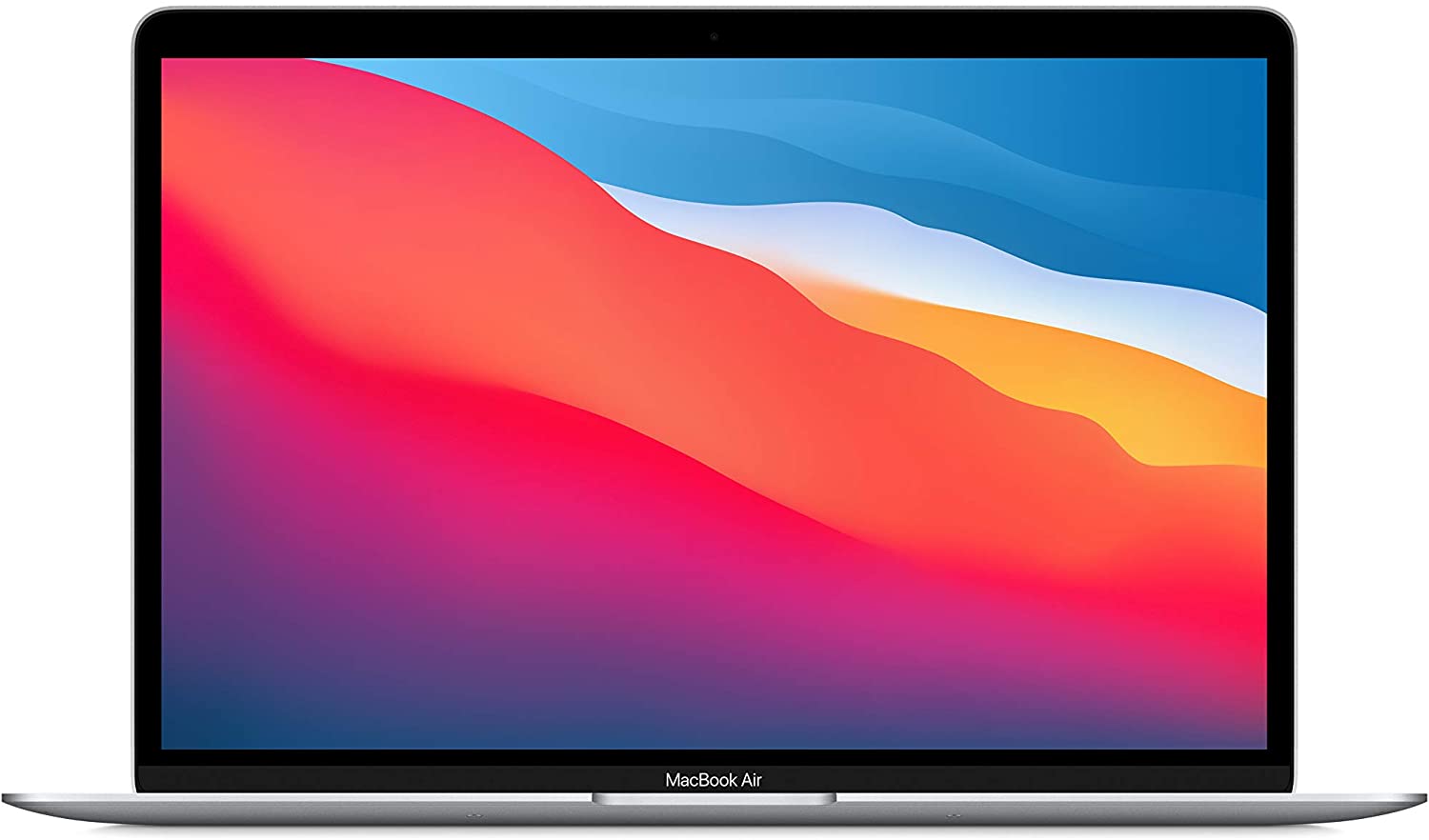
Samsung Galaxy Book Pro vs MacBook Air: Processor, RAM, Graphics and Storage
Samsung offers the Book Pro with two processors: an Intel Core i5-1135G7 or an Intel Core i7-1165G7. Graphics with either option are Intel Evo Iris Xe Graphics.
The MacBook Air has Apple’s M1 unified system on a chip with a choice of 8-core CPU/7-core GPU or 8-core CPU/8-core CPU. That latter option is the same as in the M1 MacBook Pro but the Air’s fanless design means you can expect CPU throttling under heavy load. Fan or no fan it’s an exceptionally fast and efficient system and in benchmarks it outperforms the Core i7-1135G7 in single and multi-core tests.
The Galaxy Book Pro comes with 8GB of RAM and 512GB of storage in the Core i5/13.3” specification and 16GB of RAM and 512GB of storage in the Core i7/15.6” specification. There’s also a 4G LTE version of the Core i5/13.3” model that drops the storage to 256GB to keep the cost down. All models have Wi-Fi 6E.
The MacBook Air has 8GB or 16GB of unified memory and 256GB to 2TB of SSD storage. There’s no LTE option and its Wi-Fi is Wi-Fi 6.
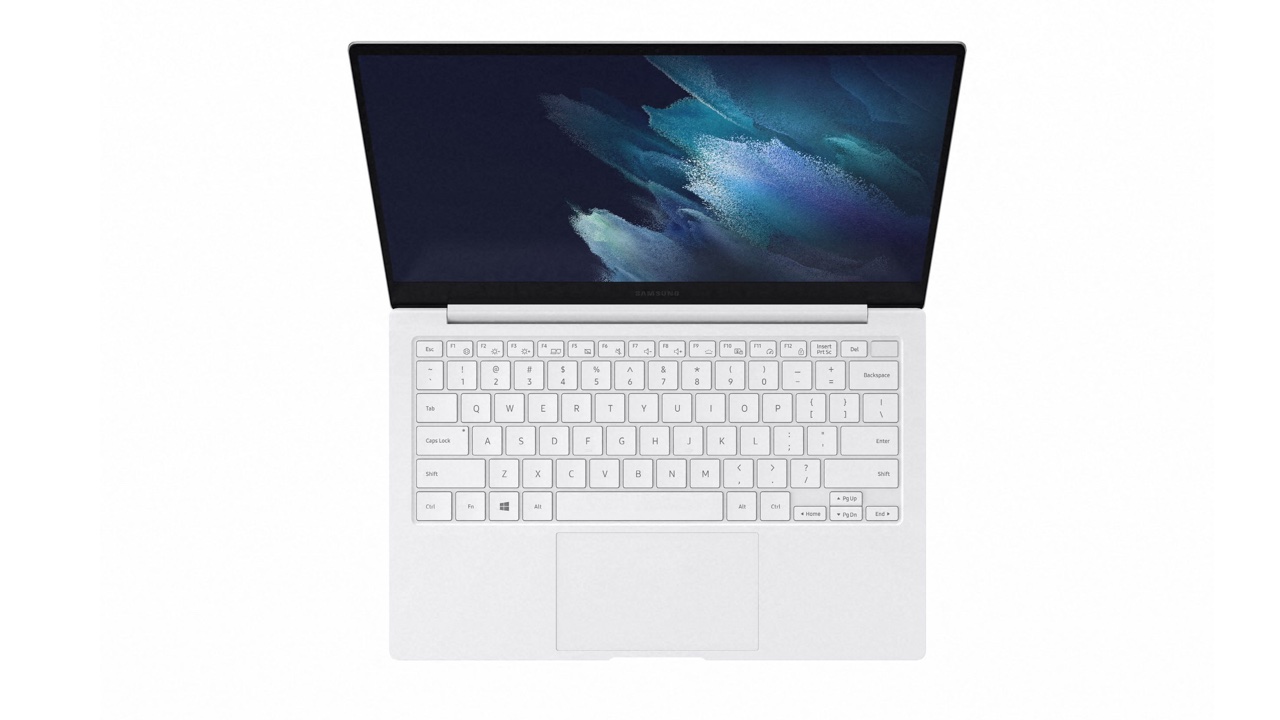
Samsung Galaxy Book Pro vs MacBook Air: battery and connectivity
Samsung says you can expect 16 hours of everyday use from the Book Pro. It charges via USB-C and its other ports are HDMI, Thunderbolt 4, microSD and USB 3.2.
The MacBook Air promises 15 hours of wireless web browsing and up to 18 hours of movie playback. It charges via one of its two USB-C ports, both of which support charging, DisplayPort, Thunderbolt 3 and USB 3.1 Gen 2.
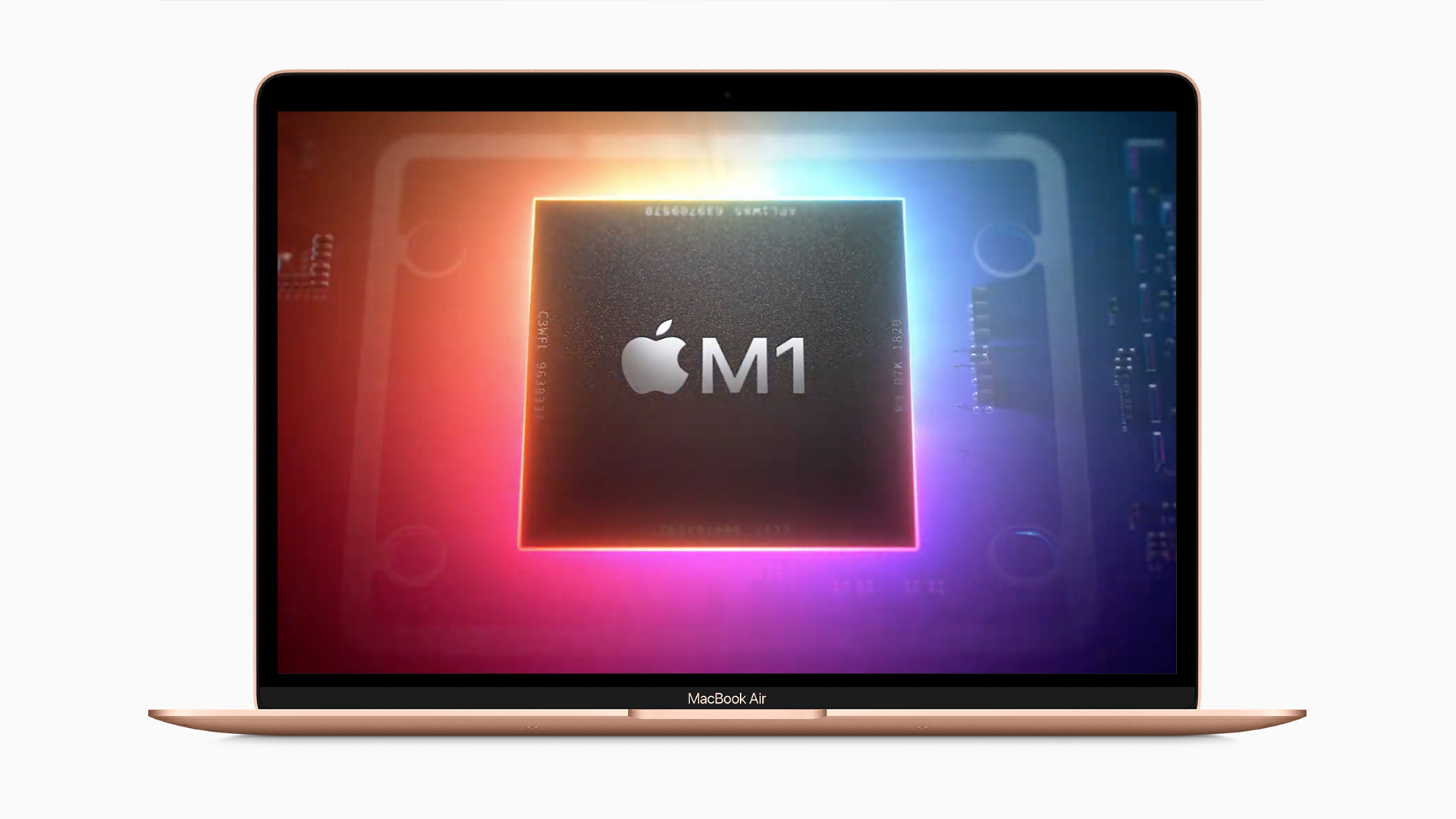
Samsung Galaxy Book Pro vs MacBook Air: price and availability
The Samsung Galaxy Book Pro starts at $999 / £1,099 / AU$ tbc for the 13.3” Core i5 with 8GB of RAM and 512GB of storage. The 13.3” LTE model is the same price but has less storage.
The 15.6” Galaxy Book Pro is $1,099 / £1,199 / AU$ tbc for the Core i5 with 8GB/512GB, rising to $1,199 / £1,449 / AU$ tbc for the Core i7 with 16GB/512GB.
There are no details about Australian pricing or availability just yet but US and UK consumers can expect delivery from 14 May 2021.
The MacBook Air is available now. It starts at $999 / £999 / AU$1,499 for the 7-core GPU model with 256GB and $1,249 / £1,249 / AU$1,849 for the 8-core with 512GB.
Samsung Galaxy Book Pro vs MacBook Air: verdict
These are very similar laptops built to high standards with high performance and exceptional portability, although of course they run different operating systems. If you’re OS-agnostic the Samsung Galaxy Book is lighter and offers a 4G LTE version for even better mobility, and there’s a larger 15.6” model if you’d prefer a desktop replacement. The 13.3-inch model is also significantly cheaper than the MacBook Air.
That doesn’t mean it’s an easy win for the Samsung though. The 11th generation Intel Core processors are very good, but the various benchmarks we’ve seen indicate that Apple’s M1 systems have the edge in both sheer performance and battery life. The MacBook Air is effectively a fanless MacBook Pro (M1, 2020), and unless you’re driving it extremely hard it runs extremely quickly and incredibly quietly. It might not have the most cutting-edge laptop design any more, but it’s what’s inside that really counts.
We’ve nominated the MacBook Air as the best laptop for most people, and we think that’s still the case. But the Samsung Galaxy Book Pro is a very strong contender for the best lightweight laptop, and we’re looking forward to putting it up against its premium PC rivals to see how it compares.
- These are the best 2-in-1 laptops available today
Writer, musician and broadcaster Carrie Marshall has been covering technology since 1998 and is particularly interested in how tech can help us live our best lives. Her CV is a who’s who of magazines, newspapers, websites and radio programmes ranging from T3, Techradar and MacFormat to the BBC, Sunday Post and People’s Friend. Carrie has written more than a dozen books, ghost-wrote two more and co-wrote seven more books and a Radio 2 documentary series; her memoir, Carrie Kills A Man, was shortlisted for the British Book Awards. When she’s not scribbling, Carrie is the singer in Glaswegian rock band Unquiet Mind (unquietmindmusic).
